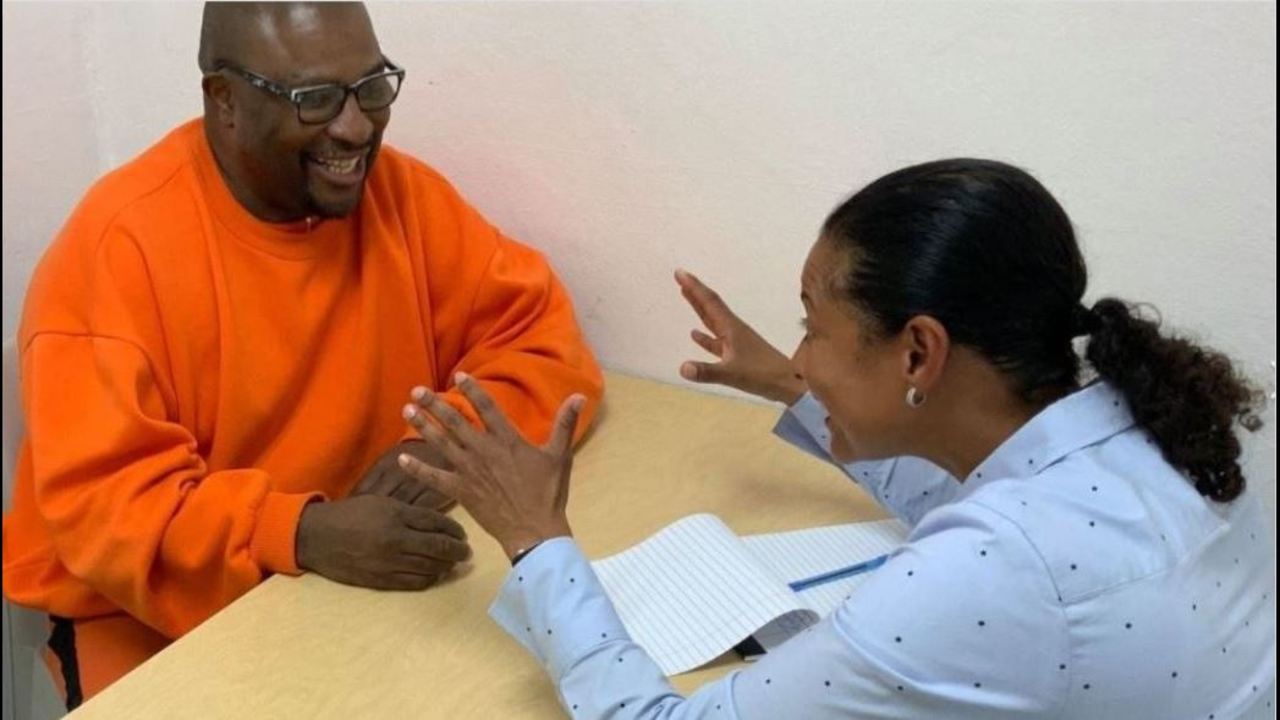

San Francisco – On Monday Judge John K. Stewart formally re-sentenced Emmitt Lewis and Michael Wilson to time-served and two years of parole, one week after granting their petition under the SB 1437, reforming the felony murder rule. Both men have been in custody since 2003 when they were arrested and subsequently convicted on charges of robbery and felony murder.
However, with the new state law, both men were re-sentenced following a two-day hearing two weeks ago showing the state had not proven beyond a reasonable doubt that either man either was the actual killer or acted with indifference to human life.
On Monday, Judge Stewart, in vacating the murder sentences – that for Mr. Wilson was a 50-year-to-life sentence – he issued separate admonishments to both men that they have lived a life of crime and that they now have a chance to make a new life for themselves, but this will be their final chance.
“This is a new chance for life, you need to take advantage of your opportunity,” the judge said. “You’ve basically lived a life of crime up until this point. This is your last chance.”
He told Mr. Wilson, “This new law enables you not to die in prison.” But now, he said, this this is up to you. “This is the first day of the rest of your life.”
Prior to the re-sentencing, Assistant District Attorney David Merin read victim impact statements from the family of 35-year-old Scott Adsit, who was killed instantly when the vehicle slammed into him as he was loading tools onto his truck outside his Excelsior District home when the crash happened on July 7, 2003.
His niece told the judge that it “broke my heart” as “I read both men had been released.” She said that, apparently, “no one was driving” the truck and “no one robbed the lady.” She also pointed out  that neither man showed remorse for killing a man one year after his being married.
that neither man showed remorse for killing a man one year after his being married.
His sister pointed out that they killed Mr. Adsit right in front of his own home.
“He was only 35 years old and his life was ripped away,” she said. “Sixteen years have passed but my heart still aches with anguish.”
In 2006, the two men were convicted of first-degree felony murder after a woman in San Francisco was robbed. The two men then allegedly took off in their truck at speeds estimated between 47 to 53 when they struck and killed a pedestrian, colliding first with a GMC truck and then a parked van further down the road before ending up at a 45 degree angle, straddling a staircase.
The key question during the hearing was which man drove the vehicle and, here, the judge found conflicting eyewitness accounts, but physical evidence including blood stains on the passenger side of the vehicle – on the glove compartment and on the headliner – that pointed away from Mr. Lewis being the driver.
“Upon reviewing, which is extremely important here in view of the eyewitness testimony, the People have not proven beyond a reasonable doubt that Mr. Lewis was the driver of the vehicle and was the actual killer,” Judge Stewart said.
Nor did the People prove that “Mr. Wilson, acting as the passenger, acted with reckless indifference of human life.”
He said, “It is the view of the court that the petition should be sustained (and) the defendants are eligible for resentencing.”
On Monday the only real question left was whether the men would be simply released or released on parole.
Ms. Solis argued that the court had the discretion to simply release Mr. Lewis. She noted that he had served 6771 actual days but was required under the new sentencing to serve five years plus 3 years of parole.
She noted that Mr. Lewis would be sent to the Tenderloin under a parole release program, which she argued was not a good place for someone trying to get their life back in order.
However, Judge Stewart in reading from 1170.90 (G), noted that the law allowed for a grant of parole, even taking into account time served when considering re-sentencing.
It was his view that parole was necessary – however, given that both men served more time than required under the new sentence, he ordered them to do two years of parole, rather than three.
Mr. Lewis, in addition to the work of Ms. Solis, was also assisted by Kristin Hucek, of Keker Van Nest & Peters LLP. “Without co-counsel and the private funding for an expert witness provided by Keker, Van Nest & Peters, this may not have been possible. Not everyone who is suffering under the old felony murder rule can afford this type of representation. In fact, most cannot. This case underscores the need for funding and resources to defender offices so we can realize the justice this new law provides,” Niki Solis said last week.
Ms. Solis, a 24-year veteran of the San Francisco Public Defender’s office, expressed her condolences to Mr. Adsit’s family: “My heart goes out to the family of Mr. Adsit, who was the victim of this tragic accident. I cannot imagine the grief and loss.”
“Mr. Lewis going away for life for neither committing the robbery nor driving the get-away vehicle that struck Mr. Adsit, was the once harsh reality of the felony murder rule.” Ms. Solis said. “We are relieved that justice was served, even if it came after Mr. Lewis spent sixteen years behind bars.”
Kristin Hucek said, “I vividly remember first learning about the felony murder rule in law school and being struck by how unjust it seemed when applied to individuals like Mr. Lewis. The California Legislature made such an important decision last year when it blunted the harshness of the felony murder rule and gave individuals like Mr. Lewis the opportunity to benefit from it.”
—David M. Greenwald reporting
You can catch our podcast interviewing Niki Solis and fellow public defender Jacque Wilson on this issue:

